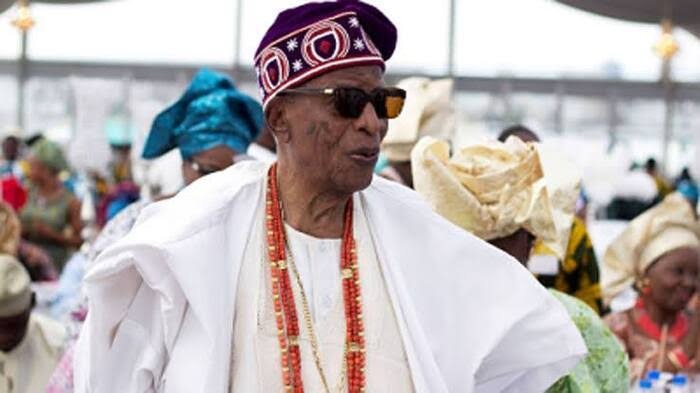In two months’, time, precisely on December 14, this year, Chief Christopher Oladipo Ogunbanjo, would have joined the league of centenarians. He belonged to that special breed of Nigerians who, through a life that thrived on self-discipline and moderation, defied the biblical logic of three score and ten and four score for those who are strong.
Coming from a background of strict Christian values, this son of a Catechist from Erunwon, Ijebu, in present day Ogun State, imbibed the teachings that prepared him for the life he was to live and the struggles he seemed set to overcome on his path to attaining the goals he benchmarked for himself.
Without doubt, Pa Ogunbanjo was a strong man not just by the assessment of his physical composition but also by virtue of his attainments in life that formed the yardstick for measuring achievements in human circumstances.
It is often said that oaks from little acorns grow, so it was for the young Christopher who tried his hands in little efforts that led him to England where he studied and qualified as a lawyer. That academic prowess placed him appropriately on his journey of life and upon which he became one of the pioneers of corporate legal practice in Nigeria.
It must be noted that he did not take to corporate law from the beginning as he paid his dues elsewhere. He swept the floor in the chambers of that foremost nationalist, Chief Horatio Davies of blessed memory. A short-lived partnership followed after which he finally got his bearing right and settled down to a life as corporate lawyer which eventually defined his personality and set him apart as one of the best in the country.
Pa Ogunbanjo put his knowledge of law and the experience he acquired in the course of his professional practice as a corporate lawyer to effective use. He was an early advocate of domiciliary accounts in Nigeria which later came to existence through the promulgation of the Foreign Currency Decree 18 of 1985. In the late 1960s, he was among the group of businessmen who supported local equity participation in foreign firms operating in Nigeria. This push might have laid the foundation for the promulgation of the Nigerian Enterprises Promotion Decree 1972 & 1977 or what is commonly referred to as Indigeniastion Decree.
Commenting on the life and times of this corporate icon, President Bola Ahmed Tinubu urged all who are mourning this elder statesman, whose life was characterised by an exceptional commitment to philanthropy and the betterment of the country, to reflect on the extensive contributions he made to the progress of humanity and to carry forward the ideals he lived for.
He further said, “Chief Chris Ogunbanjo will be remembered for his extraordinary life of service to his community and the promotion of best business practices as a corporate lawyer of untarnished repute. His contributions to the economic development of Nigeria and commercial law practice in our country will endure.”
Tinubu also described him as a distinguished figure in Nigeria’s legal and business communities, whose multifaceted roles as an industrialist, corporate lawyer and philanthropist left indelible impressions in these important fields as he empowered and mentored numerous professionals from Nigeria and beyond.
In his own reaction, the Ogun state governor, Dapo Abiodun said that Ogunbanjo distinguished himself as a very cerebral lawyer who combined the knowledge of law with entrepreneurial shrewdness.
Another corporate guru and perhaps Ogunbanjo’s contemporary, Dr Michael Omolayole said of him: “I am certainly a beneficiary of Chief Chris Ogunbanjo’s informal university of life, which acts as bridge between the younger generation and the most senior citizens. Like every good lawyer, he enjoys nothing more than a vibrant intellectual disputation with good humour. I always enjoyed his cerebral approach to issues.”
Ogunbanjo was born on 14 December 1923. He was educated at St Phillips Primary School, Aiyetoro, Ile-Ife before proceeding to Oduduwa College, Ife for his secondary education in 1936. Two years later, he transferred to Igbobi College in Lagos. He began work in 1942 as a junior clerk in the Judicial Dept in Enugu and was subsequently transferred to Port Harcourt. He left the civil service in 1946 to study law at the University of London, Ogunbanjo obtained a law degree in 1949 and was called to the bar in 1950. On his return from London, he worked briefly for the law firm of H.O. Davies before establishing his own private practice; his firm added two more partners, Samuel Ladoke Akintola and Michael Odesanya in 1952 to become Samuel, Chris and Michael Solicitors. The partnership was dissolved in 1960 and his practice became Chris Ogunbanjo & Co.
Ogunbanjo married Hilda Ladipo in 1953. His wife was editor of AMBER, a women’s lifestyle magazine established in the 1960s which was later acquired by Daily Times.
He had in his honour several chieftaincy titles and awards of Officer of the Federal Republic (OFR) and Officer of the Order of Nigeria (OON).
This newspaper joins his friends and associates in condoling with the family he left behind. May his soul rest peacefully in the bosom of the Lord.





